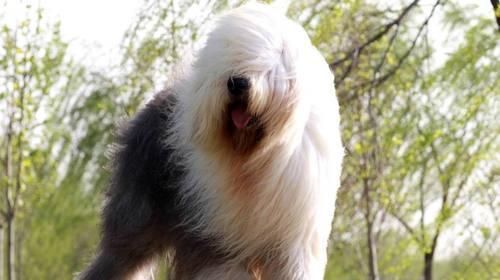
Ancient Shepherd
Water, fat, carbohydrates, minerals, cellulose, protein, and vitamins are necessary for maintaining the normal life and activity of dogs.
I. Water
In the dog, the water content in the blood accounts for more than 80%; the moisture content of the muscles accounts for about 72-78%; the water content in the bones accounts for about 45 %. The needs of dogs to water far exceed the need for food. There is no special water storage organs in the dog's body. The source of water in the dog's body is mainly obtained from the water and direct drinking water in the feed, so as to achieve the balance of water required in the body. Adult dogs require water per kilogram of weight 100 ml of water; puppies are 150 ml of water per kilogram of weight.
2. Fat
Fat is an important part of the life body. Its main function is to storage energy. 9.4 kcal of heat can be generated after the fat is decomposed, which is higher than the energy of sugar and protein. The energy in fat cannot be absorbed directly by the dog and must be converted into fatty acids to absorb. Fatty acids are important among dog cell membranes and reproductive organs and hormones. However, linoleic acid and peanut acid cannot be synthesized in the dog's own, but they must be obtained from the feed. Dogs are easy to absorb saturated fatty acids in animal feed, while unsaturated fatty acids in plant feed are more difficult to absorb. Therefore, if long -term feeding plant feed will cause dog malnutrition.
Three, carbohydrates
carbohydrate, commonly known as sugar. In dog body, the main source of energy of life activities is glucose, and glucose can be quickly absorbed by the dog. Glucose always maintains a certain level in the blood of the dog to maintain the energy required by the organs in the dog's body.
Fourth, minerals
Minerals refer to other metal elements outside the dog's carbon, hydrogen, and oxygen. In minerals, such as calcium, phosphorus, sodium, potassium, magnesium, etc. are the main components required for dog nutrition. Minerals such as iron, zinc, iodine, manganese, selenium, etc., they have a small content in the dog body. Although minerals are small in dogs, they will play an important role in the height of hormones in the body, soft tissue, blood, body flow, cells, etc. in the body. And directly affect the conduction function of the nervous system.
Five, cellulose
A moderate amount of cellulose can promote gastrointestinal motility and be conducive to digestion. Cellulose exists in plant feed.
6. Protein
Protein is the main active substance of life activity, and it is also the main nutrients for creatures to maintain their own life activities. In the life of dogs, it was the most critical stage of development in a child, and the protein required the largest amount; in adulthood, the amount of protein needs to gradually stabilize. Therefore, in dog foods, animal feed should not be less than 30%. For some precious dog species (such as police dogs, anti -drug dogs, arrest dogs, etc.), the proportion of animal feed should be increased. For adult dogs, four grams of digestible proteins are required every day.
Seven, Vitamins
Vitamin is an organic compound with high biological activity, which cannot be synthesized or rarely synthesized in the biological body. If there is a lack of vitamins, the synthesis process of organic matter in the dog will be suspended, which will cause the dog to have a pathological state. Various vitamins contained in dog feed are generally enough for dogs.
Balanced nutrition is one of the necessary conditions for dogs to grow up healthy.
